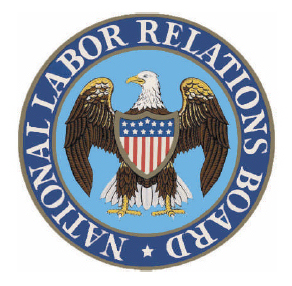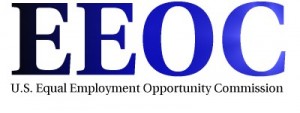
By R. Joseph Leibovich
(901) 328-8269
The United States Department of Labor today issued an Administrator’s Interpretation (AI) as to when joint employment situations exist for purposes of cases under the Fair Labor Standards Act. The DOL indicated it has issued these guidelines to protect workers in “fissured workplaces,” in which it is likely that an employee is working for multiple employers. This can often be the case is situations involving staffing companies.
The AI looks at so called “Horizontal” and “Vertical” joint employment situations.
Under the guidance, Horizontal Joint Employment “should be considered” when an individual is employed by technically separate entities that are actually related or overlapping. As an example, the AI points to a server who works for two different restaurants that are sufficiently associated. The AI lists non-exclusive factors to be analyzed to determine whether or not Horizontal Joint Employment exists. These are:
– Who owns the potential joint employers (i.e., does one employer own part or all of the other or do they have any common owners);
– Do the potential joint employers have any overlapping officers, directors, executives, or managers;
– Do the potential joint employers share control over operations (e.g., hiring, firing, payroll, advertising, overhead costs);
– Are the potential joint employers’ operations inter-mingled (for example, is there one administrative operation for both employers, or does the same person schedule and pay the employees regardless of which employer they work for);
– Does one potential joint employer supervise the work of the other;
– Do the potential joint employers share supervisory authority for the employee;
– Do the potential joint employers treat the employees as a pool of employees available to both of them;
– Do the potential joint employers share clients or customers; and
– Are there any agreements between the potential joint employers.
The AI notes that joint employment does not exist if the employers “are acting entirely independently of each other and are completely disassociated.”
In Vertical Joint Employment situations, one employer typically has made an arrangement to provide labor for another entity while handling some employer functions such as hiring and/or payroll. In determining whether or not an individual is an employee, the DOL will look at seven factors utilizing an “economic realities test”:
Directing, Controlling, or Supervising the Work Performed. To the extent that the work performed by the employee is controlled or supervised by the potential joint employer beyond a reasonable degree of contract performance oversight, such control suggests that the employee is economically dependent on the potential joint employer. The potential joint employer’s control can be indirect (for example, exercised through the intermediary employer) and still be sufficient to indicate economic dependence by the employee. See Torres-Lopez, 111 F.3d at 643 (“indirect control as well as direct control can demonstrate a joint employment relationship”) (citing pre-1997 MSPA regulation); Antenor, 88 F.3d at 932, 934; 29 C.F.R. 500.20(h)(5)(iv). Additionally, the potential joint employer need not exercise more control than, or the same control as, the intermediary employer to exercise sufficient control to indicate economic dependence by the employee.
Controlling Employment Conditions. To the extent that the potential joint employer has the power to hire or fire the employee, modify employment conditions, or determine the rate or method of pay, such control indicates that the employee is economically dependent on the potential joint employer. Again, the potential joint employer may exercise such control indirectly and need not exclusively exercise such control for there to be an indication of joint employment.
Permanency and Duration of Relationship. An indefinite, permanent, full-time, or long-term relationship by the employee with the potential joint employer suggests economic dependence. This factor should be considered in the context of the particular industry at issue. For example, if the work in the industry is by its nature seasonal, intermittent, or part-time, such industry condition should be considered when analyzing the permanency and duration of the employee’s relationship with the potential joint employer.
Repetitive and Rote Nature of Work. To the extent that the employee’s work for the potential joint employer is repetitive and rote, is relatively unskilled, and/or requires little or no training, those facts indicate that the employee is economically dependent on the potential joint employer.
Integral to Business. If the employee’s work is an integral part of the potential joint employer’s business, that fact indicates that the employee is economically dependent on the potential joint employer. Whether the work is integral to the employer’s business has long been a hallmark of determining whether an employment relationship exists as a matter of economic reality.
Work Performed on Premises. The employee’s performance of the work on premises owned or controlled by the potential joint employer indicates that the employee is economically dependent on the potential joint employer. The potential joint employer’s leasing as opposed to owning the premises where the work is performed is immaterial because the potential joint employer, as the lessee, controls the premises.
Performing Administrative Functions Commonly Performed by Employers. To the extent that the potential joint employer performs administrative functions for the employee, such as handling payroll, providing workers’ compensation insurance, providing necessary facilities and safety equipment, housing, or transportation, or providing tools and materials required for the work, those facts indicate economic dependence by the employee on the potential joint employer.
The joint employer issue is a thorny one, and the AI could subject entities to scrutiny by the Department of Labor when it seeks to enforce wage and hour laws. Potential joint employers – particularly companies that utilize temporary workers from an agency – should be aware of this potential liability, and should make sure that the employees working for their benefit are being paid as required by law. Even if that pay is coming from a different company.
 Originally from Nashville, Alex completed his undergraduate studies at the University of Georgia, where he graduated from the Terry College of Business with a concentration in Real Estate and Music Business. He graduated from the University of Memphis Cecil C. Humphreys School of Law in 2015.
Originally from Nashville, Alex completed his undergraduate studies at the University of Georgia, where he graduated from the Terry College of Business with a concentration in Real Estate and Music Business. He graduated from the University of Memphis Cecil C. Humphreys School of Law in 2015.






